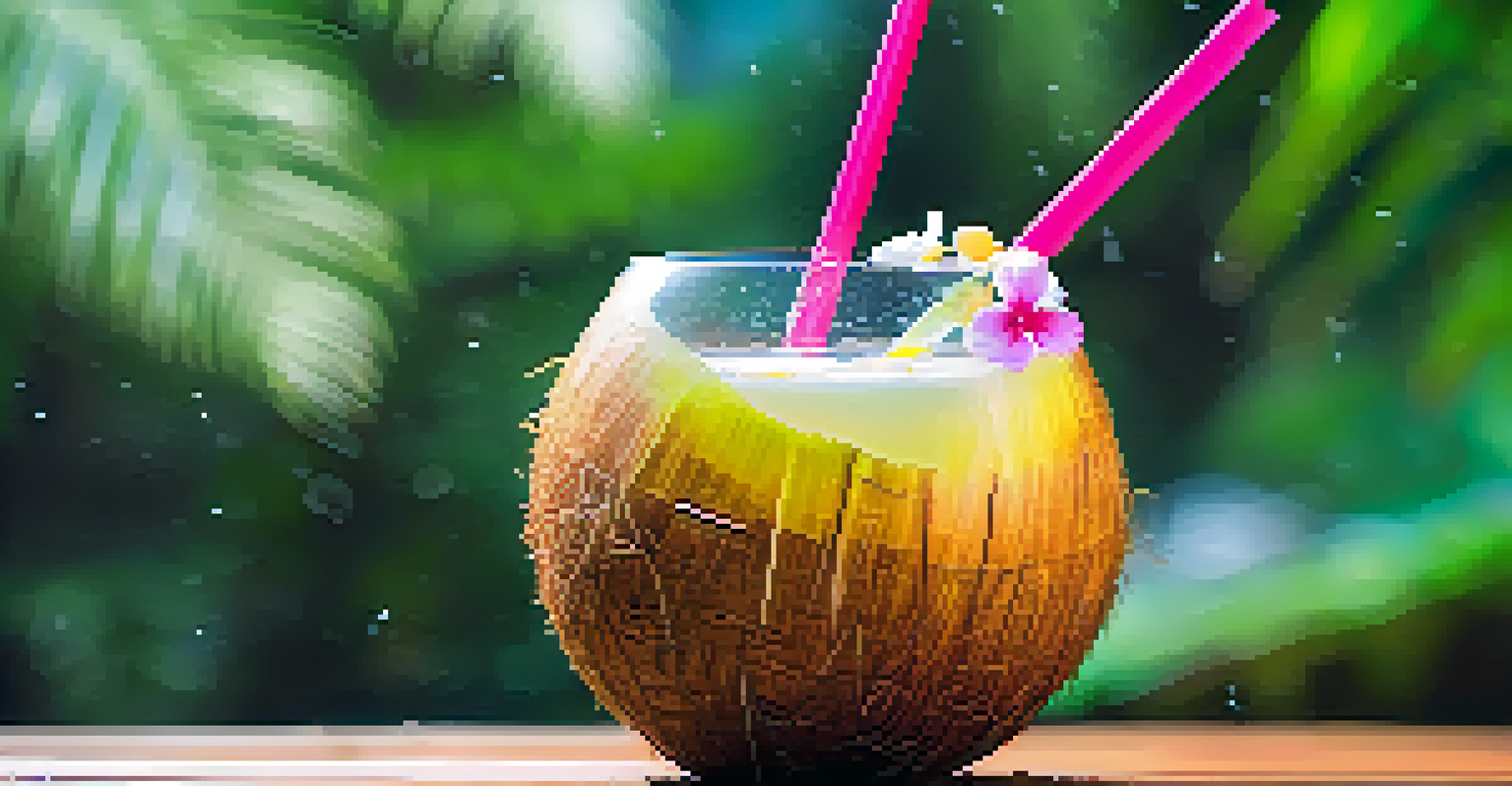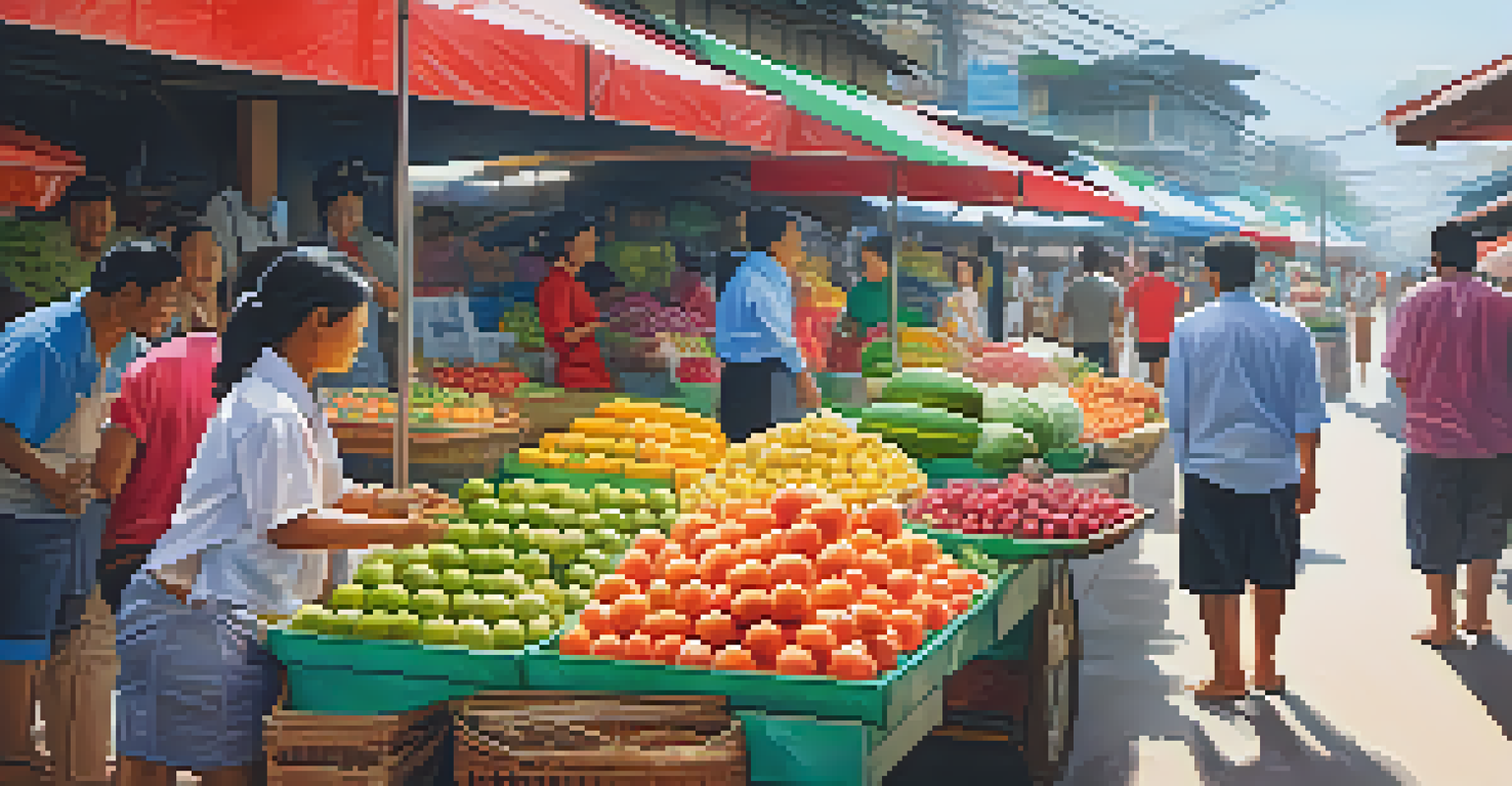Staying Hydrated: Water Safety Tips in Thailand

Understanding the Importance of Hydration in Thailand's Climate
Thailand's tropical climate can be quite demanding on your body, especially if you're not used to the heat. Staying hydrated is crucial for maintaining energy levels and overall health while exploring this beautiful country.
Water is the driving force of all nature.
Dehydration can sneak up on you, leading to fatigue, headaches, and even more severe health issues. To combat this, it’s essential to drink plenty of fluids, particularly water, to keep your body functioning optimally.
When visiting Thailand, aim to drink at least 2 to 3 liters of water daily, especially if you are engaging in outdoor activities. Remember, keeping hydrated is not just about quenching your thirst; it's about nurturing your body.
Choosing Safe Drinking Water Sources in Thailand
One of the key challenges for travelers in Thailand is ensuring the water they consume is safe. Tap water in many areas is not always potable, so it’s vital to know where to find safe drinking options.

Bottled water is widely available and is a reliable choice. Look for brands with sealed caps, and avoid any that seem tampered with. Always check the expiration date to ensure freshness.
Stay Hydrated in Thailand's Heat
Drinking at least 2 to 3 liters of water daily is essential to combat dehydration while exploring Thailand's tropical climate.
If you prefer to drink tap water, consider using a water purification system or boiling the water for at least a minute. This can help eliminate any harmful bacteria and make it safer for consumption.
Staying Hydrated During Outdoor Activities
Thailand offers a myriad of outdoor adventures, from trekking in national parks to relaxing at the beach. When you're active, it's easy to forget about hydration, but it's more important than ever.
Your body is like a garden, it needs to be watered regularly to flourish.
Bring a refillable water bottle with you on hikes or excursions, and make it a habit to sip water regularly. A good rule of thumb is to drink at least half a liter of water every hour while participating in vigorous activities.
Additionally, consider hydrating snacks such as fruits like watermelon and oranges. They not only replenish fluids but also provide essential vitamins to keep you energized throughout your adventures.
Recognizing Signs of Dehydration
Understanding the signs of dehydration is crucial, especially when exploring a hot and humid environment like Thailand. Early symptoms can include thirst, dry mouth, and fatigue.
As dehydration progresses, you may experience dizziness, headaches, and dark-colored urine. If you notice these signs, it's essential to hydrate immediately.
Choose Safe Drinking Water Wisely
Opt for bottled water or use purification methods to ensure the water you consume is safe, as tap water may not always be potable.
Always listen to your body; if you feel off, take a break, find some shade, and drink water. Prevention is always better than dealing with the consequences of dehydration.
Hydration Tips for Travelers with Dietary Restrictions
Traveling with dietary restrictions can add another layer of complexity to staying hydrated. If you have specific needs, it’s essential to plan ahead and know your options.
Many restaurants and cafes in Thailand offer fresh juices and smoothies that can be both hydrating and delicious. Just be cautious about ice, as it may be made from tap water.
Consider carrying electrolyte tablets or powder, which can easily be mixed with bottled water. This way, you can replenish lost minerals and stay hydrated without compromising your dietary restrictions.
Importance of Electrolytes in Hot Weather
While drinking water is crucial, it’s equally important to maintain your electrolyte balance, especially in a hot climate. Electrolytes, such as sodium, potassium, and magnesium, help regulate your body's hydration levels.
In Thailand, sweating can lead to a loss of these essential minerals, making it vital to replenish them. Drinking coconut water or sports drinks can be an effective way to restore your electrolyte balance.
Recognize Dehydration Symptoms
Being aware of dehydration signs, such as thirst and fatigue, is crucial for timely hydration, especially in hot environments.
Incorporating electrolyte-rich foods like bananas, avocados, and leafy greens into your diet can also help. By maintaining this balance, you'll stay energized and ready for your next adventure.
Staying Hydrated for Children and Seniors
Hydration needs can vary significantly between different age groups, making it crucial to pay extra attention to children and seniors while traveling in Thailand. Kids, in particular, can easily become dehydrated during play.
Encourage frequent water breaks for children, especially if they are running around in the heat. Consider flavored water or diluted juices to make hydration more appealing.

For seniors, regular hydration is essential for maintaining health. Remind them to drink water consistently throughout the day, and offer them electrolyte-rich snacks to keep their energy levels up.